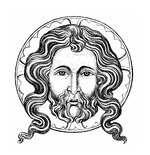
Motives of Credibility: The Miracles of Christ
REVERT'S ROSTRUM
Christians, even those who convert (or revert) after a long sojourn in the wilderness, often fail to appreciate how hard it can be for someone to abandon his previous beliefs and place his faith in Christ. For every bit of evidence deemed demonstrable proof for the existence of God, the deity of Christ, or the legitimacy of the Catholic Church, there stand myriad rhetorical obstacles. Anyone who has tried to persuade a family member, friend, coworker, or neighbor of the historicity of the New Testament or the divine approbation of the Church knows what I’m talking about.
We may, for example, point to the many miracles Christ performed. But there are other ancient texts purporting that other charismatic religious leaders amazed the crowds with seemingly supernatural deeds. New Testament scholar (and former evangelical) Bart D. Ehrman makes precisely this point, citing as just one counterexample the first-century Pythagorean teacher and itinerant preacher Apollonius of Tyana, whose birth was accompanied by supernatural signs (The New Testament: A Historical Introduction to the Early Christian Writings 2nd ed., 2000). Apollonius reportedly healed the sick, cast out demons, and raised the dead. After his death, his followers claimed he had appeared and spoken to them before bodily ascending into Heaven. What makes Jesus so special?
Moreover, we live in a post-Enlightenment era that has trained us to be suspicious of fantastical stories. Though few of us have read the 18th-century empirical philosopher David Hume, most moderns are his intellectual disciples, uncritically accepting as dogma his famous refutation of miracles in his Enquiry Concerning Human Understanding (1748). Our experience of nature’s regularity, argues Hume, should overrule any evidence of a miracle proposed for our consideration. There must be, he writes, “a uniform experience against every miraculous event, otherwise the event would not merit that appellation. And as a uniform experience amounts to a proof, there is here a direct and full proof, from the nature of the fact, against the existence of any miracle.”
Stated simply, Hume’s position is that there must always be some natural, scientific explanation for supposedly supernatural events. Thus do we hear from skeptics at the water cooler (and even from pastors at the pulpit) that Jesus didn’t turn a few loaves of bread and fish into enough food to satisfy the hunger of thousands. Rather — if there is any merit to such an historical event — He persuaded those carrying their picnic baskets to share with the needy. Neither did He walk on water; rather, He only appeared to do so when He traversed a pier that extended far out onto the Sea of Galilee. Nor did He heal the sick; rather, He simply offered basic medical care, such as the equivalent of chiropractic services to the paralyzed.
You May Also Enjoy
Meditation on divine mercy is counterproductive if it crowds out our fear of Hell, along with our recognition that God can and will allow souls to go there.
There is a Middle Eastern proverb that says one should not let the camel’s nose…
Speaking in tongues is a public act of communication in a foreign language, not a private act of devotion in a personal language.

